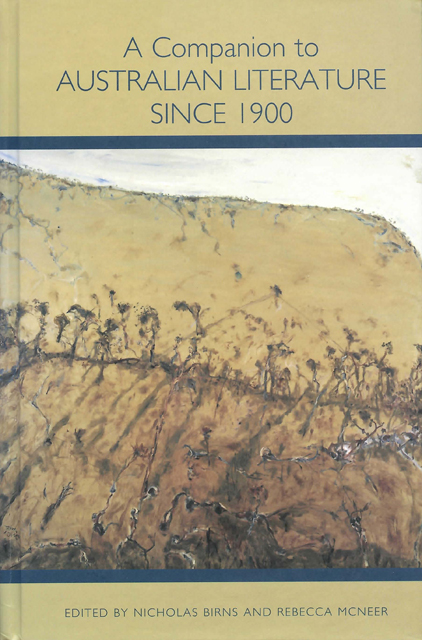Book contents
- Frontmatter
- Dedication
- Contents
- Chronology of Main Events in Australian History, 1901–2005
- Acknowledgments
- Note on the Cover Illustration and Artist
- Introduction
- Part 1 Identities
- Part 2 Writing Across Time
- Part 3 International Reputations
- Part 4 Writers and Regions
- Part 5 Beyond the Canon
- Notes on the Contributors
- Index
15 - Patrick White
Published online by Cambridge University Press: 10 March 2023
- Frontmatter
- Dedication
- Contents
- Chronology of Main Events in Australian History, 1901–2005
- Acknowledgments
- Note on the Cover Illustration and Artist
- Introduction
- Part 1 Identities
- Part 2 Writing Across Time
- Part 3 International Reputations
- Part 4 Writers and Regions
- Part 5 Beyond the Canon
- Notes on the Contributors
- Index
Summary
Patrick White (1912–90), winner of the Nobel Prize in Literature in 1973, is widely regarded as one of the major writers in English of the twentieth century. He wrote in nearly all the chief literary genres — eight plays, three books of short stories, an autobiography, and two early short books of poems as well as his twelve novels — but it is only in the novel that his reputation is likely to endure. Critical assessment of his work other than in the novel has rarely been enthusiastic, even during his lifetime, when his overwhelming presence, both as a literary giant and as a formidable, domineering figure, made it difficult to scant anything he wrote. The current attitude is that his nonfictional work has to be taken account of insofar as it bears upon his work in the novel, but it attracts few readers other than White specialists. This article is concerned with his novels, for it is within them that his extraordinary talents most fully express themselves and that his main preoccupations are clearest.
Patrick White was born in 1912 to Victor (“Dick”) and Ruth White, both from pastoralist families in the Hunter Valley area of New South Wales, when they were on a two-year stay in England. He was brought back to Australia as a baby, where a sister, Suzanne, was born in 1915. He was raised as a child in Sydney, his father having essentially sold out his share in the wealthy Belltrees estate near Muswellbrook. His early schooling was at the hands of governesses and at a prestigious private school; for his high school education he was sent to a boarding school in England. He returned from England to work as a jackaroo, gaining experience on a sheep station, first in the Monaro district in southern New South Wales, then out west near Walgett. Life as a pastoralist did not attract him, however, and he persuaded his father to let him return to England to study French and German at Cambridge University. His readings in these languages profoundly influenced his writing — more than his readings in English literature — and largely account for characteristics in his style that some readers find difficult. To those who read those languages fluently, however, his style is an exciting experience, very like that of reading French and German, extending the possibilities of English.
- Type
- Chapter
- Information
- A Companion to Australian Literature since 1900 , pp. 247 - 256Publisher: Boydell & BrewerPrint publication year: 2010



